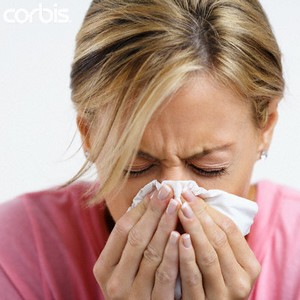
More evidence that low-calorie sweeteners are bad for your health
Studies show that artificial sweeteners can raise the risk of hypertension, metabolic syndrome, type 2 diabetes and heart disease, including stroke.

Natural Health News — Two air pollutants linked to climate change could also be a major contributor to the unparalleled rise in the number of people sneezing, sniffling and wheezing during allergy season.
The gases, nitrogen dioxide and ground-level ozone, appear to provoke chemical changes in certain airborne allergens that could increase their potency. That, in combination with changes in global climate, could help explain why airborne allergies are becoming more common. The findings were presented at a recent annual National Meeting & Exposition of the American Chemical Society (ACS).
Nasal allergies are on the rise across the world. Scientists have long suspected that air pollution and climate change are involved in the increasing prevalence of allergies. But understanding the underlying chemical processes behind this phenomenon has proven elusive. The current research provides a starting point, in understanding how chemicals can affect the allergenic potential of airborne substances.
In previous work the researchers from the Max Planck Institute explored how allergy-causing substances are altered in the air. Building on that work, they decided to dig deeper into how that happens and examine how traffic-related air pollutants could increase the strength of these allergens.
In laboratory tests and computer simulations, the researchers found that ozone (a major component of smog) oxidizes an amino acid that sets off chemical reactions that ultimately alter an allergenic protein’s structure. Meanwhile, nitrogen dioxide (found in car exhausts) appears to alter the separation and binding capabilities of certain allergens.
They believe that together, the two gases make allergens more likely to trigger the body’s immune response, especially in wet, humid and smoggy conditions.
In future research the team hopes to identify other allergenic proteins that are modified in the environment and examine how these affect the human immune system.

Please subscribe me to your newsletter mailing list. I have read the
privacy statement